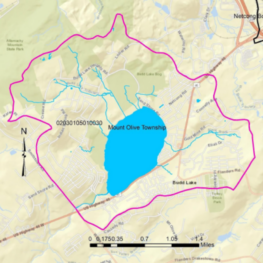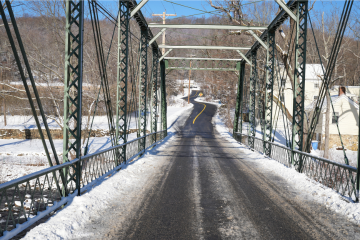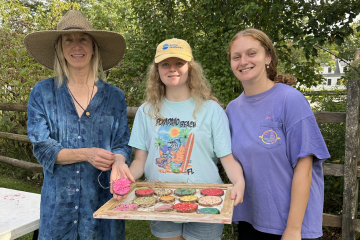Raritan Headwaters Association (RHA), in partnership with Mount Olive Township and the New Jersey Highlands Council, has launched a comprehensive baseline characterization study of Budd Lake, marking a significant step toward restoring and protecting one of New Jersey’s most iconic and ecologically significant waterbodies.
The study is the first phase in implementing the Budd Lake Watershed Restoration and Protection Plan, which was approved by the New Jersey Department of Environmental Protection (NJDEP) in 2023. The Plan aims to combat the growing impacts of stormwater pollution and Harmful Algal Blooms (HABs), both of which have compromised the lake’s water quality and public use in recent years.
“Budd Lake is a natural treasure, but it’s at a tipping point,” said Benjamin Harris, Watershed Scientist at RHA and Project Manager for the study. “This project will give us the data we need to track pollution sources, assess lake health, and ultimately reverse the damages caused by runoff and climate stressors.”

Budd Lake Watershed Area
A Science-Driven Approach to Watershed Health
The study—divided into two funding phases—includes intensive monitoring of water quality, aquatic habitat, lake hydrology, and sediment contamination. RHA’s award-winning science team will lead the effort, supported by certified labs and in-field equipment. Key parameters include nutrients, E. coli, PFAS, and heavy metals, among others.
The baseline data will help establish a regulatory-grade framework for measuring improvements over time, guided by a in-prep Quality Assurance Project Plan through NJDEP.
Community Engagement at the Core
In addition to scientific monitoring, the project will involve a robust community science component, engaging residents and local volunteers in field data collection and education programs.
“This is not just a scientific effort—it’s a community movement,” said Tracy Gordon, RHA Science Associate and Outreach Coordinator. “We’re training volunteers to be stewards of the watershed. It’s about building knowledge and a shared sense of responsibility.”
A Critical Resource for Millions
Budd Lake is not only the largest natural lake in New Jersey, but also the source of the South Branch Raritan River—part of the drinking water supply for more than 1.8 million New Jersey residents. Designated as a Category 1 (C1) waterbody, the lake has suffered recent degradation due to increased development.
Through this study, the project partners aim to provide clear, data-driven insights that will shape restoration strategies and enhance protection for this vital water resource in the years to come.
For more Information Read:



